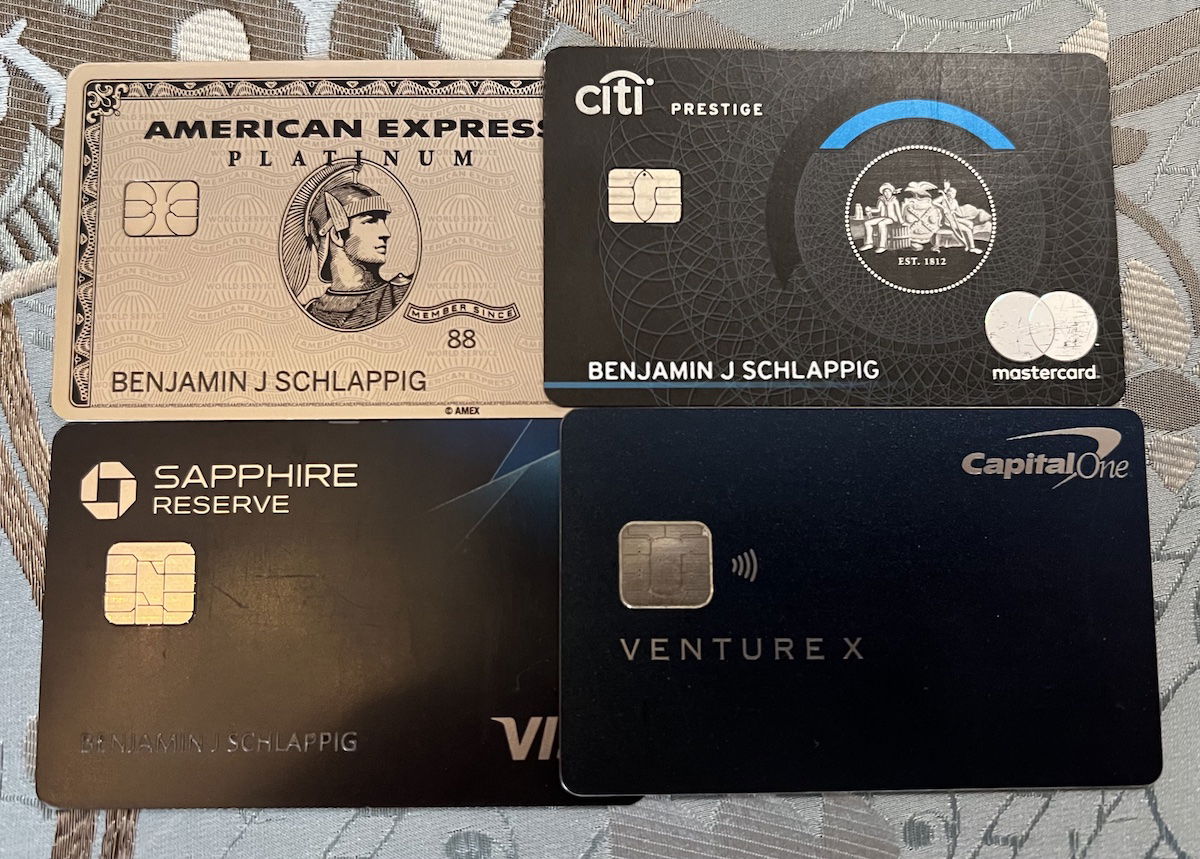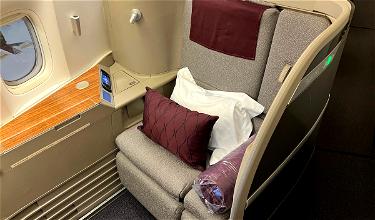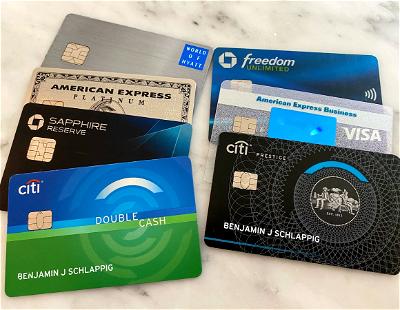Most people probably don’t look forward to paying their taxes. For those of us in the miles & points world, though, one silver lining is the potential to generate credit card spending at an attractive rate.
Personally I pay all of my estimated quarterly and annual taxes by credit card, so in this post I wanted to take a closer look at why. Long story short, the credit card rewards that you can generate by using a credit card can more than offset the fee of doing so.
In this post:
How much does it cost to pay taxes by credit card?
You can’t pay your federal taxes directly with the IRS by credit card, but rather there are three services that facilitate this. For the record, this is officially approved by the IRS, so this isn’t some shady operation. Here are the three options, along with their fees for credit card payments:
- payUSAtax.com — 1.85%
- Pay1040.com — 1.87%
- ACI Payments, Inc. — 1.98%
While the exact types of cards accepted differ somewhat between the services, all of them accept American Express, Mastercard, and Visa payments.
Also note that the above fees are for paying federal income taxes, whether year-end or quarterly. If you’re paying state or local taxes (including property taxes), there may be opportunities to pay by credit card directly online. However, the fees will differ, and the above services can’t be used for that.

What are the logistics of paying taxes by credit card?
Of course everyone is in a different situation when it comes to how much they owe in taxes, and what their credit limits are on cards. Some people with big tax bills might be in a position where what they owe is significantly more than the credit limit on their card. So how does that work?
The IRS officially claims that you’re allowed to make two credit card payments per payment period. However, anecdotally speaking, the limit seems to be two credit card payments per payment processor per tax period. Since there are three services, you can potentially make six payments per payment period by credit card. If you pay quarterly taxes, this means you could potentially make a couple of dozen payments per year by credit card.
At least that’s how I (and many others) have been doing it for years without issue. You always provide your social security number when making a payment, and the IRS lets you track payments received based on that. I’ve never had an issue with them not showing up correctly.
When is paying taxes by credit card worth it?
If you’re a savvy credit card user who pays taxes directly to the IRS, then paying your taxes by credit card should be a no-brainer. This is a great opportunity to generate credit card spending at the reasonable cost of just a 1.85% convenience fee.
Before I talk about the exact situations under which this makes sense, let me emphasize a couple of points:
- You shouldn’t pay taxes by credit card if you’re not actually good at maximizing credit card rewards, and if you’re not earning rewards that exceed the cost of the fees; you’ll want at least a calculated return of 2%, and ideally more
- You shouldn’t pay taxes by credit card if you can’t use credit cards responsibly, and are going to end up financing your tax payments using high credit card interest rates
With that in mind, under what circumstances does it make sense to pay your taxes by credit card, while paying a fee of 1.85-1.98%? In no particular order…
Credit cards with a great return on spending
The credit card landscape is incredibly competitive nowadays, and credit card rewards structures have improved considerably. If you’re using one of the best cards for everyday spending, you should easily be able to get value that exceeds the 1.85-1.98% fee.
For example, there are several cards that potentially earn up to 2x transferable points per dollar spent, including the following:
- Capital One Venture X Rewards Credit Card (review) (Rates & Fees)
- Capital One Venture Rewards Credit Card (review) (Rates & Fees)
- Citi Double Cash® Card (review)
- The Blue Business® Plus Credit Card from American Express (review)
- Capital One Spark Miles for Business (review) (Rates & Fees)
I value all these points currencies at 1.7 cents each, meaning that to me that’s the equivalent of a 3.4% return on spending. This is essentially a way to acquire transferable points for under a cent each, which I think most would agree represents a good value. I’d buy transferable points all day long at under one cent each if I could.
Let me also emphasize that above I’m including both personal and business cards that earn 2x transferable points. However, keep in mind that you should typically not use business cards for personal spending. However, I’m trying to be thorough in terms of the return on spending offered by various cards.
As you can see above, you can even come out marginally ahead by using a good cash back card, which earns a 2%+ return on spending. A 2% return on spending probably isn’t worth the hassle factor, but in some cases you can do even better than that.

Meet credit card minimum spending requirements
There are some amazing credit card welcome bonuses out there, which generally require you to spend a certain amount within a defined period. Sometimes the spending requirements might be more than you’d otherwise ordinarily spend, especially if there’s a huge bonus with a significant spending requirement.
Paying taxes at a reasonable fee of 1.85-1.98% is a great way to generate credit card spending for these purposes.
Credit cards with spending or threshold bonuses
In addition to the cards with a generally lucrative return on everyday spending, there are also cards with specific threshold spending bonuses, which are particularly lucrative.
For example, the World of Hyatt Credit Card (review) has a $15,000 annual spending sweet spot, if you ask me. If you put a $15,000 payment on the card for a 1.85% fee (~$278), you’d earn 15,000 World of Hyatt points, a Category 1-4 free night award, and an incremental six World of Hyatt elite nights. That’s a pretty great value.
Similarly, the Hilton Honors American Express Surpass® Card (review) and Hilton Honors American Express Business Card (review) offer a free night award when you spend at least $15,000 on the card in a calendar year. So not only would you earn 45,000 Hilton Honors points for spending $15,000, but you’d also earn a free night award valid at a property costing up to 150,000 Hilton Honors points. That’s incredible.

Credit cards with airline & hotel elite status opportunities
There are more opportunities than ever before to earn airline and hotel loyalty program elite status through credit card spending.
For example, American AAdvantage status is now based on earning Loyalty Points, so you can qualify for elite status through credit card spending. Spending $200,000 on the Citi® / AAdvantage® Executive World Elite Mastercard® (review), Citi® / AAdvantage® Platinum Select® World Elite Mastercard® (review), or American Airlines AAdvantage® MileUp® (review), would earn you American’s top tier Executive Platinum status.
Now, is this worth earning exclusively through credit card spending? No, probably not. But at the margins it can be worth it, and at the rate of 1.85-1.98%, that’s pretty attractive pricing.
To give a hotel example, the IHG One Rewards Premier Credit Card (review) offers IHG One Rewards Diamond status if you spend $40,000 on the card in a calendar year. If you spent $40,000 on taxes with a 1.85% fee, you’d be paying an extra $740. For that you’d receive the following:
- 120,000 IHG One Rewards points (the card earns 3x points)
- A $100 statement credit and an additional 10,000 points (the card offers this when spending $20,000 per calendar year, plus making one additional purchase)
- IHG One Rewards Diamond status
I’d say that very much has the potential to be worthwhile as well.

Credit cards with low-interest opportunities
In general I advise against financing charges on your credit card, given how high interests rates can be. However, we do sometimes see promotional low or no interest rate opportunities on a credit card. If you’re in a cash crunch and being able to finance these charges for some amount of time would be helpful, this could give you some extra time. Again, I’d avoid this if at all possible, but I do think it’s worth acknowledging.
Bottom line
I’ve been paying my taxes by credit card for many years, and find it to be an excellent value. Being able to generate credit card spending for a fee of under 2% is a no-brainer, in my opinion. It’s an easy opportunity to reach minimum spending, it’s a great way to acquire transferable points for under one cent each, and it’s also the easiest way to meet spending threshold bonuses or earn elite status.
Personally my default is using a card earning 2x transferable points, though I’ll also often use this opportunity to reach minimum spending requirements on cards.
Do you pay taxes by credit card, and if so, what’s your strategy for deciding which card to use?





What do you mean by this? Is it b/c of tax purposes or the credit card company?
"However, keep in mind that you should typically not use business cards for personal spending."
Just was on the Pay1040 website and appears you can pay business tax there, as well as personal.
This only works if you can pay the balance before the payment is due to the credit card. It depends if the return is larger than the fee. For example on a card with "everyday spending" or on a card that you need to meet an opening minimum spend.
This post shows that you don't have a large enough credit line on any card that you hold because you mentioned that you need to divide it into multiple payments and multiple providers. I suggest you check your credit line with each card and move it around when necessary. The banks will let you move between personal cards and business cards (with the same LLC) as you like, but I think the problem is less...
This post shows that you don't have a large enough credit line on any card that you hold because you mentioned that you need to divide it into multiple payments and multiple providers. I suggest you check your credit line with each card and move it around when necessary. The banks will let you move between personal cards and business cards (with the same LLC) as you like, but I think the problem is less about your credit line and more about how much credit line is on a particular card. Some cards you probably have a relatively large credit line considering your use of it. For example if you spend a couple of hundred dollars on a card per year then having a $1000 line is enough.
Does anyone ever really get in trouble for putting personal spend on a business card? Seems they just want your transaction $.
I used to do this a lot, and maybe when I'm low on points I will again. But even though I can get a guaranteed 2.25% from Chase Unlimited with CSR (1.5x earn + 50% bonus on spend through the portal) I've found that I hate going through the portals because you can't get seat assignments. They just say they'll "request" the seats. And also when you log onto your airline account the trip doesn't show up in My Trips. All in all I just find it an irritaiton.
Easy way to solve that. You can arrange your seat directly with the airline because Chase gives the airline reservation number as well as their record locator or reservation number.
Another option: if you have BOA Premium Rewards Visa and you are a Platinum Honors in their Preferred Rewards program, you can earn 2.62%. Which means you can net 0.77% (2.62 - 1.85 = 0.77) cash back when paying taxes with this card.
Yes, very true and I found that the lower card is more beneficial than the premium rewards card. The annual fee versus the benefits don't work for the premium card but the return is the same.
True, there are no annual fee cards that will give you same return as long as you are Platinum Honors. However, I disagree that the annual fee vs benefits doesn't work for Premium Rewards Visa. It comes with $100 airline fee (any airline) statement credit that more than offsets the $95 annual fee. I buy United Travel Bank credit with any leftover credit at end of year.
Also, if you pay quarterly, using a credit card, when timed well, adds 45-60 days to the period you are able to earn bank interest on the money. This was unimportant until 2022…but at 4% in higher interest accounts, then you are going to get $1,000 in total if you pay $150k in taxes. $300 on the .015% gap between 2% return cards and 1.85% fees and then another $700 or so on the interest. All amounts rough.
I have paid taxes to meet the MSR on several cards this past year. When I still owe more, I either put the spend on my Chase Freedom Unlimited since it gives me 1.5% back since the cost becomes less than .5% or I use my Fidelity Visa Card which gives me back 2% on all charges. Granted the 2% is not much more than the fee but still better than nothing and it still gives me a month of interest before I have to pay it off.
I used an Alaska Air business card that I recently opened to pay my estimated tax to reach a SUB. Kept getting errors, tried 2 different vendors. Finally, I added it to PayPal, chose the PayPal option, and it went through fine. Maybe it doesn’t like business cards.
Ah, thank you. You were right on -- I was using a new ink biz card for the SUB and adding to Paypal pushed it through successfully. Thanks!
I overpaid my taxes to meet a spend and expected the usual quick refund. Instead, the over payment refund was held up for review. . . for almost two years. At least they paid me interest, but I would not repeat the process.
Did you pay $90,000 in tax on a $60k income?
anyone else having issues the last few days with pay1040 and payusatax? Both seem to be flagging multiple errors when attempting to submit payments.
Great article, smart way to get something back for paying larger tax bills. Especially hitting the spend requirements for status/free nights.
In addition, you can pay your taxes with credit card thru Paypal to max out 5% Bonus
(When Chase/Discover offers Paypal as a bonus)
You can also pay your taxes with VISA/Master card gift cards ($2.50fee per card)
Problem with the gift cards is that the balance on the gift card is not high enough.
I do this every year and intentionally make payments on multiple cards to hit certain spend thresholds. My first priority with my 1/15 estimated payment is to hit my $25k MQD waiver on Delta AmEx cards to qualify for Platinum status and move up in the upgrade pecking order for the year. I typically do this by spending $10k on Gold biz card to earn $100 DL credit and $15k on Reserve personal card. If...
I do this every year and intentionally make payments on multiple cards to hit certain spend thresholds. My first priority with my 1/15 estimated payment is to hit my $25k MQD waiver on Delta AmEx cards to qualify for Platinum status and move up in the upgrade pecking order for the year. I typically do this by spending $10k on Gold biz card to earn $100 DL credit and $15k on Reserve personal card. If earning MQM's is important to you spend $30k on Reserve to get 15,000 MQMs.
Like Ben, I also do the $15k hits on Hyatt and Hilton cards for the free night thresholds, but generally wait until later in the year to only "top-up" spend on these cards rather than spending the entire $15k each.
You can only pay personal Income taxes by credit card, those companies don’t accept credit card payments for businesses Income taxes.